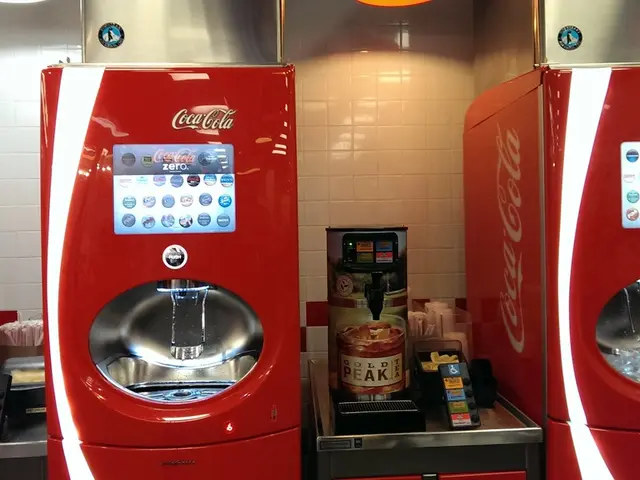Factors with the Most Significant Influence on the Cost of SMS Marketing
In the digital age, Short Message Service (SMS) marketing has become a popular strategy for businesses to reach their customers directly. However, understanding the cost associated with SMS marketing is crucial for effective budgeting and planning. Here's a breakdown of the key factors that influence the cost of SMS marketing.
Carrier Costs
Fees paid to mobile network operators for each SMS segment sent vary by carrier agreements and regions. These costs, often referred to as carrier costs, form a significant part of the overall SMS marketing expense.
Pricing Model
The pricing model employed by the sender significantly impacts the base costs. Whether you opt for pay-per-message, subscription-based, or volume-committed plans can make a difference, especially for different message volumes.
Message Length and Encoding
A standard SMS includes 160 characters; messages exceeding this limit may be split into multiple segments, each counting as a separate message. Additionally, messages containing Unicode characters (like emojis) increase costs due to the requirement for multiple segments.
Aggregation Mark-ups
Intermediaries (aggregators) that route messages between senders and carriers may add additional fees, known as aggregation mark-ups.
Compliance and Registration Fees
Regulatory compliance, such as brand or campaign registration with carriers, is essential for SMS marketing campaigns. These costs can vary depending on the region and carrier requirements.
Maintenance and Operational Costs
Monthly fees for maintaining connectivity and ensuring delivery uptime/service level agreements are common maintenance and operational costs associated with SMS marketing.
Routing Choice
Using direct routes to carriers tends to reduce costs, while the use of grey routes may appear cheaper but can increase costs due to message failures and retries.
Message Type and Features
Basic SMS is the cheapest, while richer formats like MMS or RCS, which include multimedia or interactive elements, tend to have higher costs.
Volume and Scaling
Higher volume commitments often qualify for discounted rates, while low-volume, flexible sending prefers pay-per-message for cost efficiency.
Campaign-Specific Factors
The use case (promotions vs. transactional messages), geographic targeting, and frequency also alter overall spend. Sending messages too often may lead to audience unsubscribing, while sending too few might hurt engagement. Deciding which interactions are essential can help manage costs, as not every campaign necessitates replies or real-time feedback.
International SMS
Sending messages to international numbers can incur extra carrier fees or taxes. Domestic texting is usually cheaper than reaching people outside the home country.
Hidden Charges
When reviewing the cost of SMS marketing, it's important to consider hidden charges, minimum fees, or required subscriptions.
Choosing the Right Number Type
The right number type depends on the volume and business goals. Simpler formats are often sufficient for one-way notifications or flash sales, while interactive features such as reply tracking, links, surveys, or keyword responses may incur extra charges. Short codes are faster and more reliable but cost more upfront, while toll-free numbers may lack the same delivery speed.
Optimizing SMS marketing costs involves choosing the right provider (preferably direct-to-carrier), controlling message length and encoding, maintaining good list hygiene to reduce waste, and understanding compliance requirements. Typical cost ranges for standard SMS messages with up to 160 characters are about $0.01 to $0.015 per message, increasing for longer messages proportionally. RCS or MMS messages typically cost more due to richer content and additional infrastructure.
Technology plays a significant role in determining the cost of SMS marketing. Carrier costs, pricing models, message length and encoding, aggregation mark-ups, compliance and registration fees, maintenance and operational costs, routing choice, message type and features, volume and scaling, campaign-specific factors, international SMS, hidden charges, and choosing the right number type all contribute to the total expenditure in SMS marketing.




